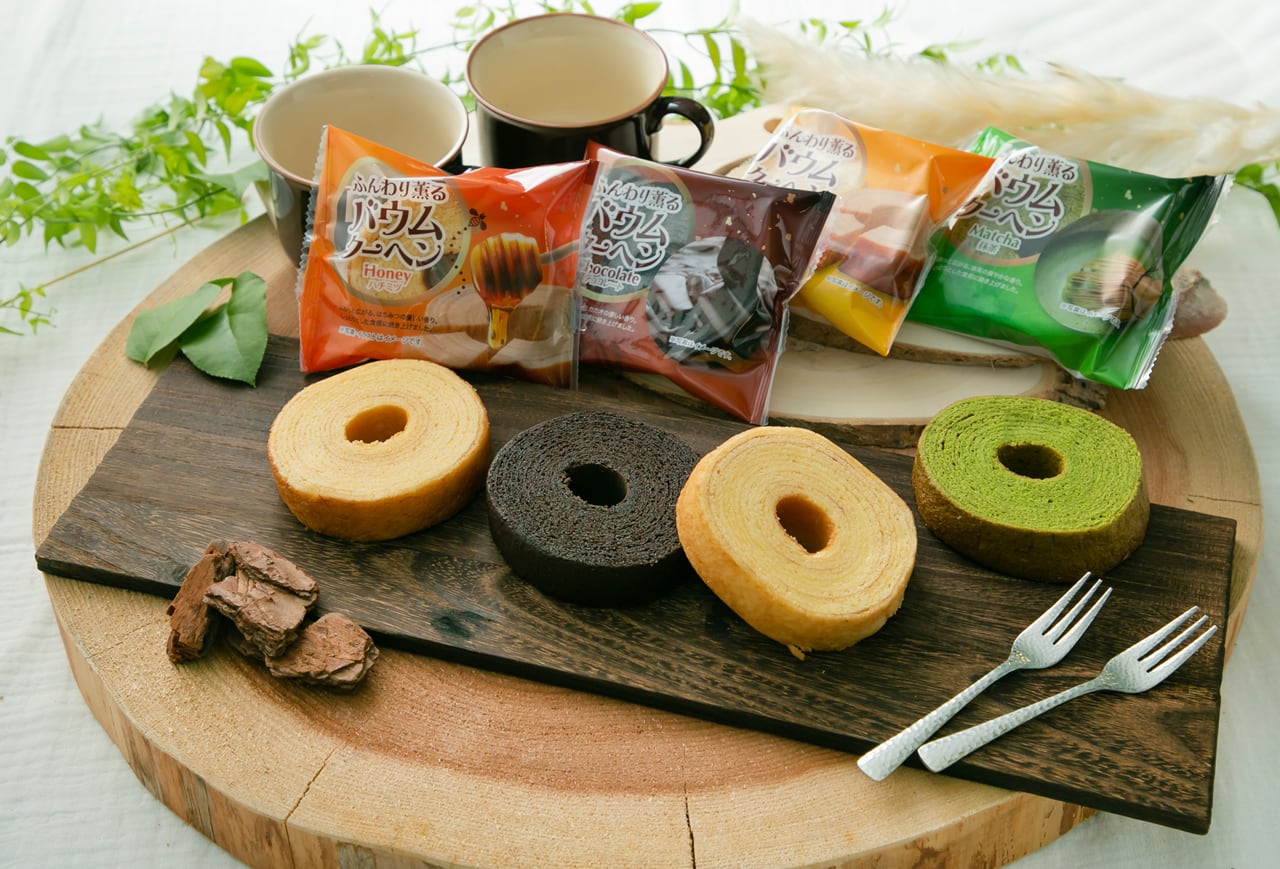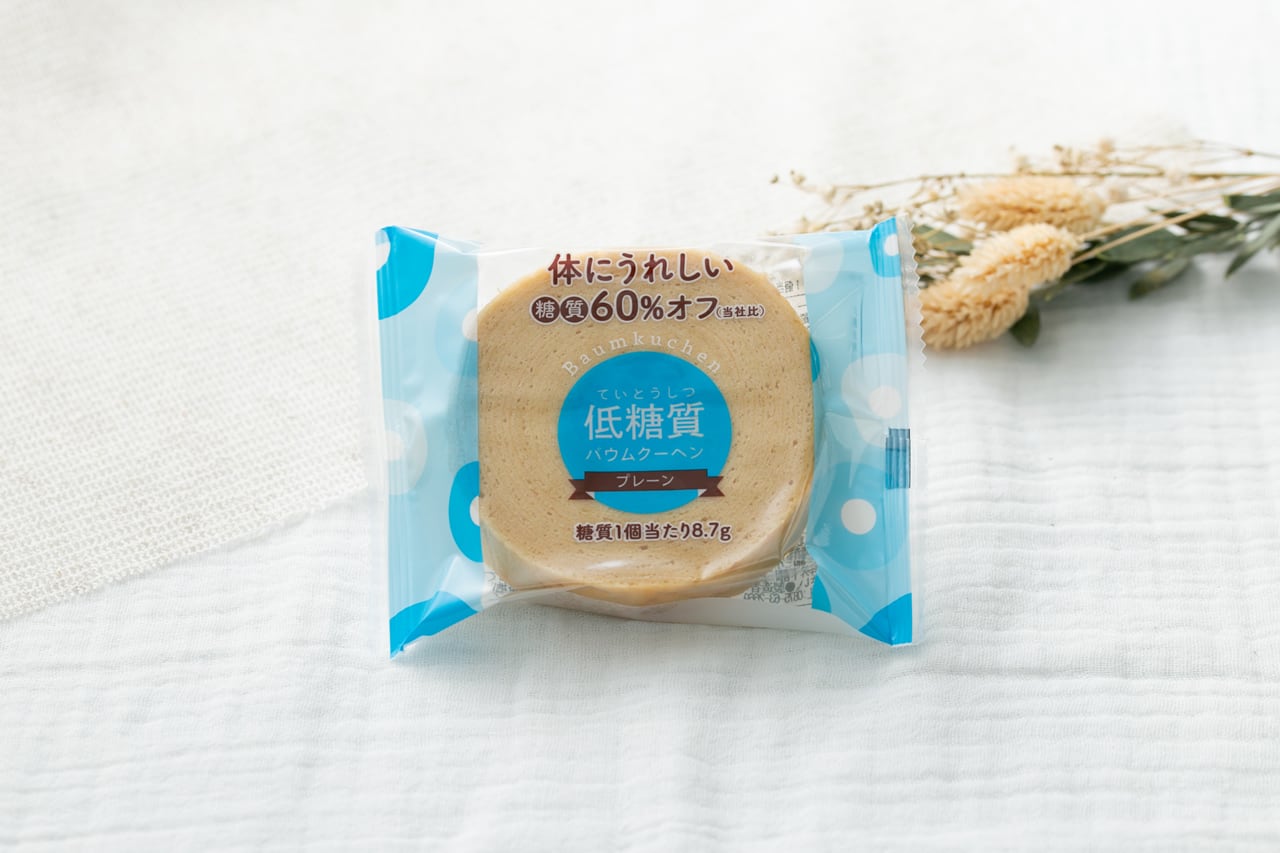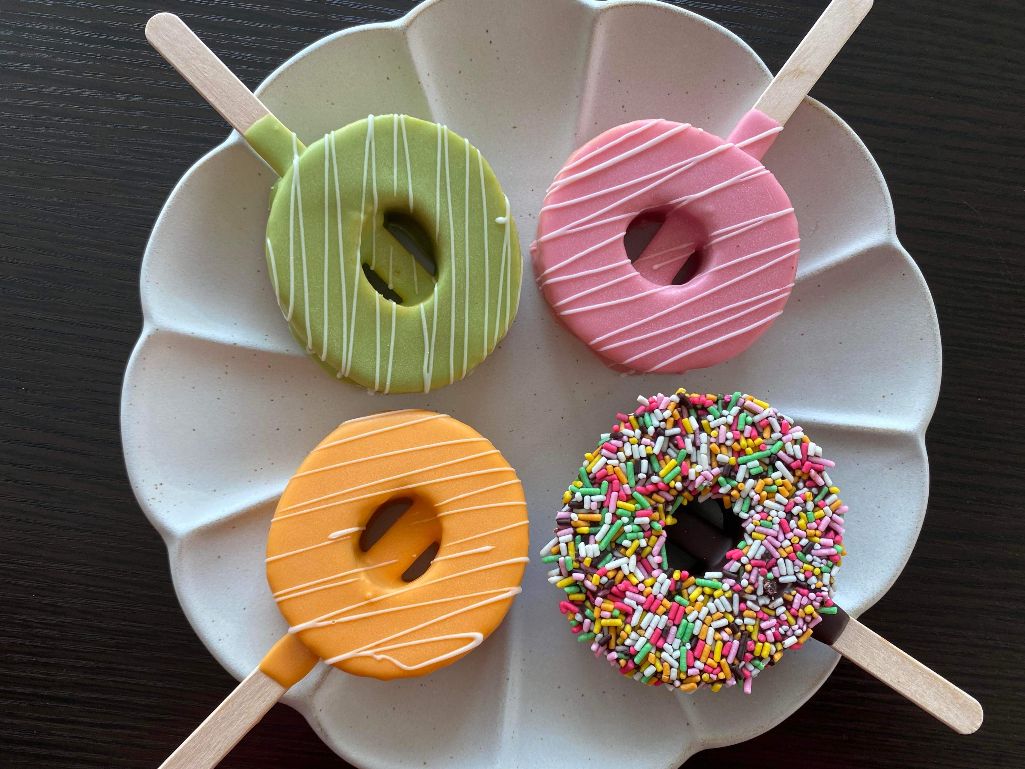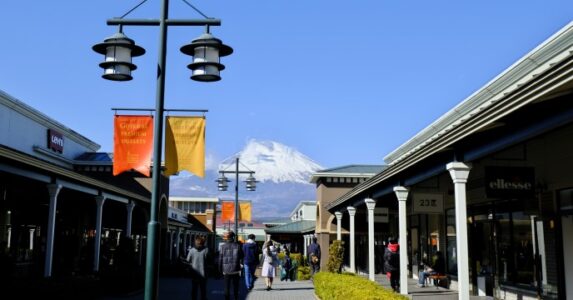Halal-certified: Taking Japanese Baumkuchen out to the world, FDI
Kagawa-based confectionery manufacturer FDI has obtained Halal certification for its Baumkuchen, exporting them to the Islamic market. In this interview, hear from founder-president Junji Hara on the details behind their product’s features and future prospects.

We are a confectionery manufacturer specialising in Baumkuchen.
Four of our products are Halal-certified, so Muslims can buy them without any worries. We plan to increase the number of certified products over time.
Starting out with the plain flavour, we later developed a colourful product assortment as wedding favours. They were very well received and recognised as a good-luck gift. Unfortunately, similar products began popping up in the market soon after.
Then the next we developed was the “Tabe-aruki Baum” (= eat while walking Baumkuchen). We wanted this product to be both tasty and ‘Instagram-worthy’ on social media platforms. Even though it was sold directly from the factory, it was so popular that it was eventually sold at airports and elsewhere.

We also developed the ‘Low Sugar Baum’, targeting health-conscious consumers. It has 60% less sugar and more dietary fibre while retaining the same delicious taste.
Alongside developing new products, we also began to expand our business abroad. The domestic market for Baumkuchen has a lot of competition, but it is surprisingly unknown abroad. That’s because the soft and fluffy type of Baumkuchen known and loved in Japan came to evolve in their own way here. In Germany, the homeland of Baumkuchen, they have a firmer texture, which may be a reason why they are less popular with everyone.
Our company has been expanding overseas as a unique Japanese confectionery exporting to the USA, Australia, Malaysia, Singapore, Vietnam, Thailand, Taiwan, China, Korea and other countries. In our surveys conducted in Malaysia and Singapore, they have received very high acclaim.
We are currently getting calls from places such as Pakistan and the UAE, so we are actively looking into exporting our products.

In line with exports, we obtained Halal certification to ensure that our products can even be enjoyed by Muslims. We actually gave up trying to get this certification about 10 years ago. But we decided to go for it because the cost is now about 1/5 lower than it was, so it became more accessible for Japanese companies.
Eventually, we plan to have our whole factory certified Halal to start producing and exporting more confectionery beyond Baumkuchen.
One of our ideas for a new product is the ‘Honwarabi Mochi’ (real warabi mochi)*1. There are cheap products sold in supermarkets named ‘Warabi Mochi’ made from tapioca, konjac and other ingredients. However, they are completely different from real warabi mochis. Domestic 100% warabi flour, made from bracken roots, is a luxury item, costing over 10,000 yen per kilogramme.
We want to produce real warabi mochi with a soft and smooth texture and a pleasant aroma that melts in your mouth, making it available for people overseas to enjoy.

Our company has developed a series of delicious products enjoyable for everyone to eat with peace of mind. Be sure to give them a taste!
< Business Profile >
Company name: FDI Co., Ltd.
Head office: 1074-1 Yamamotochotsuji, Mitoyo, Kagawa 768-0101
Business outline: Confectionery manufacturing
Official HP: Only One BAUMKUCHEN
*1 Warabi Mochi (わらび餅): a type of Japanese mochi/rice cake made of warabi or bracken starch. It is a chewy, jelly-like mochi covered with sweet-nutty soybean powder and drizzled with kuromitsu (black sugar) syrup.
We have a network of Japanese companies keen to expand into the Halal market in Malaysia & Indonesia.
If you are interested in connecting with sustainable technology companies in Japan, simply JOIN the network from below. We will match the right one for you!




